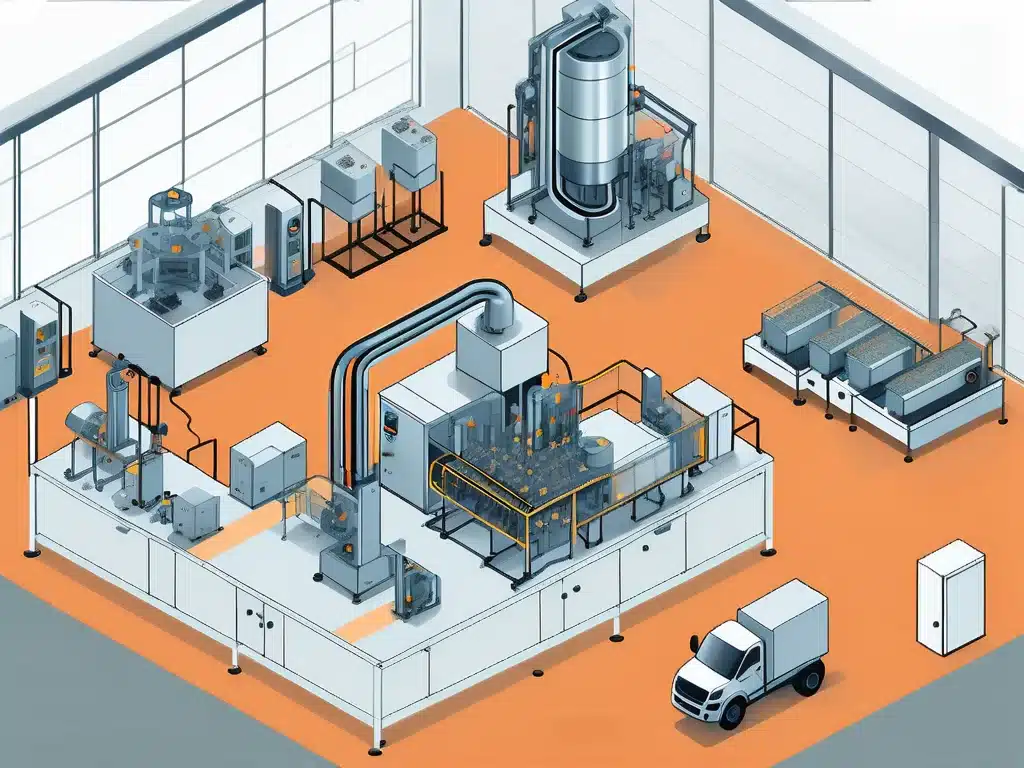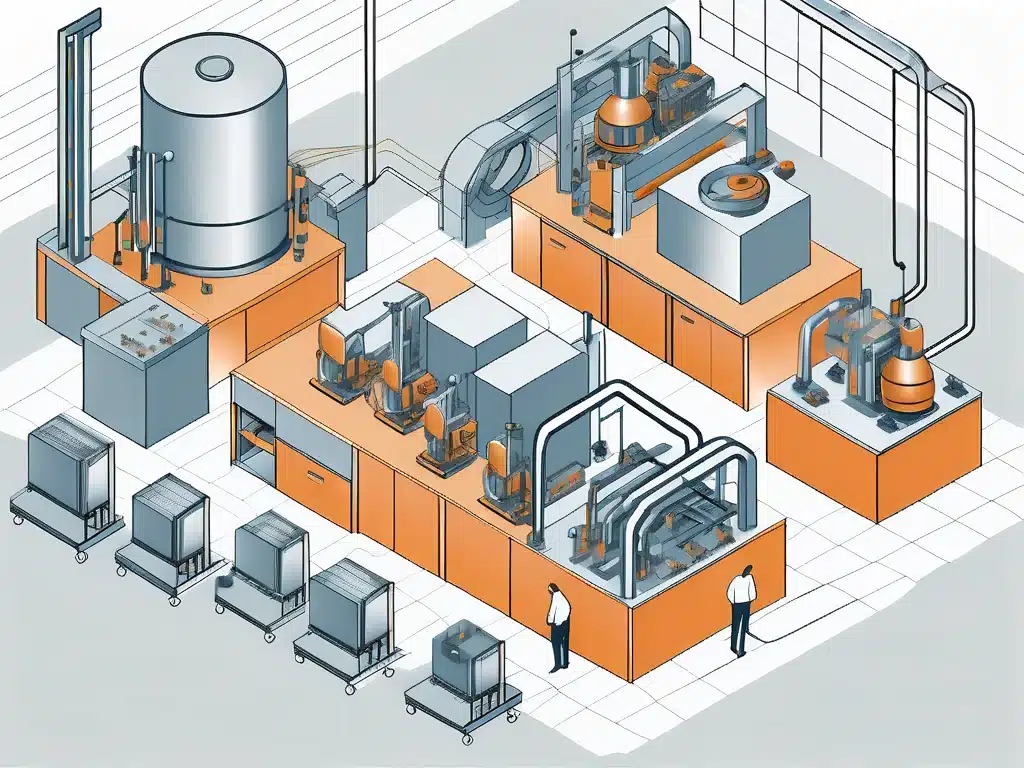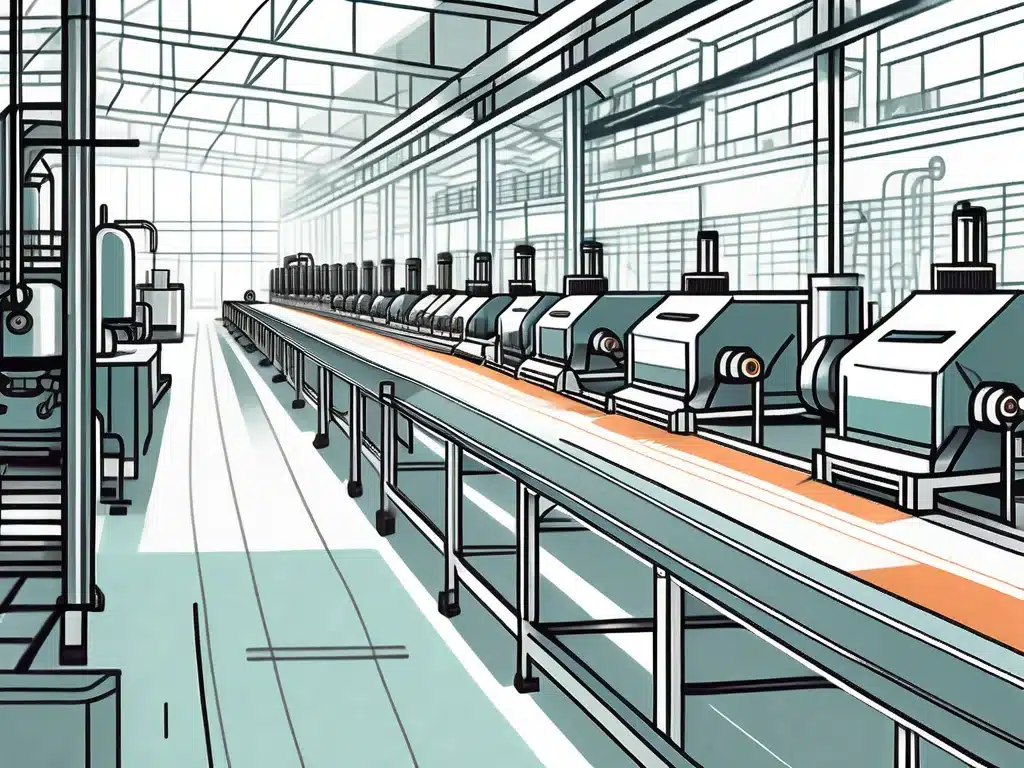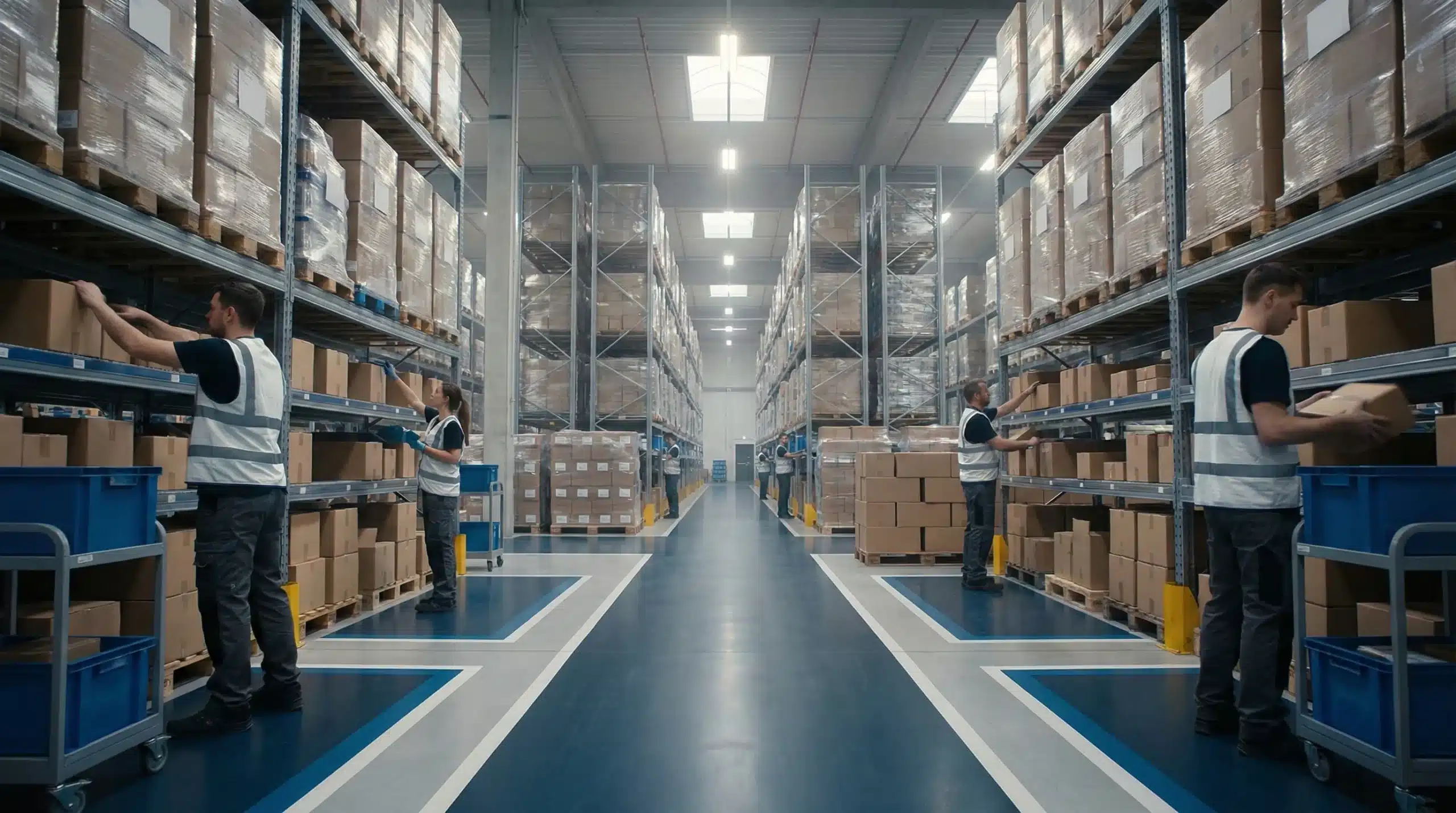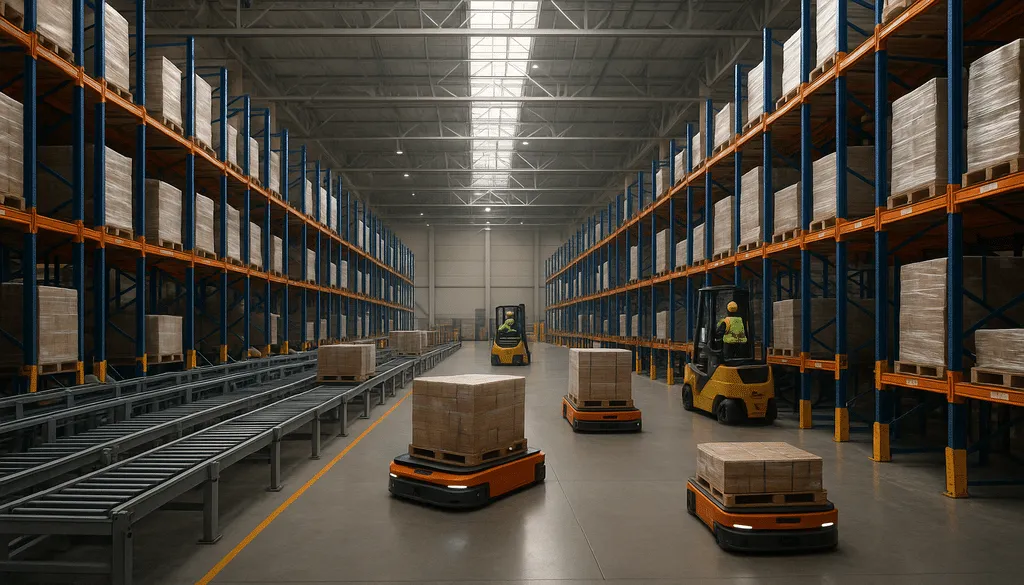In today’s competitive manufacturing landscape, companies are constantly searching for ways to improve efficiency and streamline their production processes. One key strategy that has proven to be effective is the implementation of shop-floor control systems. By understanding the role of shop-floor control in manufacturing and leveraging its key components, companies can significantly enhance their operational efficiency and reduce waste and downtime.
Understanding Shop-Floor Control
Shop-floor control refers to the management and coordination of production activities on the shop floor. It involves monitoring and controlling various aspects of the production process, such as scheduling, resource allocation, and quality control. Shop-floor control systems enable manufacturers to have real-time visibility into their production operations and make data-driven decisions to optimize efficiency.
The Role of Shop-Floor Control in Manufacturing
Shop-floor control plays a crucial role in manufacturing by ensuring that production processes run smoothly and efficiently. It helps companies minimize bottlenecks, avoid production delays, and meet customer demand. By centralizing control and communication, shop-floor control systems improve coordination between different departments and enable seamless integration of production activities, from order processing to final product delivery.
Key Components of Shop-Floor Control Systems
Shop-floor control systems consist of several key components that work in tandem to streamline production processes and improve efficiency. These components include:
- Scheduling and planning tools: These tools help companies create realistic production schedules and allocate resources effectively.
- Real-time monitoring and reporting: With real-time data on production activities, companies can quickly identify and address any issues that may arise, minimizing downtime.
- Quality control and inspection: Shop-floor control systems incorporate quality control measures to ensure that products meet the required standards before they are released.
- Inventory management: Efficient inventory management is essential for smooth production operations. Shop-floor control systems provide accurate inventory data and help optimize stock levels.
Let’s delve deeper into each of these components to understand their significance in shop-floor control systems.
Scheduling and Planning Tools
Scheduling and planning tools are the backbone of shop-floor control systems. They enable manufacturers to create realistic production schedules that take into account various factors such as machine availability, labor capacity, and material availability. By optimizing the allocation of resources, these tools help companies maximize productivity and minimize idle time. Additionally, they allow for efficient sequencing of production tasks, ensuring smooth flow and minimizing bottlenecks.
Real-time Monitoring and Reporting
Real-time monitoring and reporting are essential for effective shop-floor control. By collecting and analyzing data on production activities in real-time, manufacturers can gain valuable insights into the performance of their production processes. This enables them to quickly identify any deviations from the planned schedule and take corrective actions to avoid delays. Real-time reporting also facilitates communication between different departments, allowing for timely decision-making and coordination.
Quality Control and Inspection
Quality control and inspection are critical components of shop-floor control systems. These systems incorporate robust quality control measures to ensure that products meet the required standards before they are released. By implementing automated inspection processes and integrating quality control checkpoints throughout the production line, manufacturers can detect and rectify any defects or deviations early on. This helps in reducing rework, minimizing waste, and ensuring customer satisfaction.
Inventory Management
Efficient inventory management is vital for smooth production operations. Shop-floor control systems provide accurate and up-to-date inventory data, enabling manufacturers to optimize stock levels and avoid stockouts or overstocking. By integrating inventory management with other components of the system, such as scheduling and planning tools, manufacturers can ensure that they have the right materials at the right time, minimizing production disruptions and improving overall efficiency.
In conclusion, shop-floor control systems are instrumental in managing and coordinating production activities on the shop floor. By leveraging scheduling and planning tools, real-time monitoring and reporting, quality control and inspection measures, and efficient inventory management, manufacturers can optimize their production processes, improve efficiency, and meet customer demand effectively.
The Link between Shop-Floor Control and Efficiency
Implementing shop-floor control not only enables manufacturers to have better control over their production processes but also yields significant efficiency gains.
Efficiency in manufacturing is a crucial factor that directly impacts a company’s bottom line. By implementing shop-floor control systems, manufacturers can streamline their operations and achieve higher levels of productivity. The seamless integration of technology and production processes allows for smoother workflows and better coordination among different departments.
How Shop-Floor Control Enhances Operational Efficiency
By providing real-time visibility into production activities, shop-floor control systems enable manufacturers to identify inefficiencies and bottlenecks in the production process. This insight allows them to make timely adjustments and ensure that resources are allocated optimally. With accurate production data, companies can also identify areas where productivity can be improved and take necessary actions to enhance their overall efficiency.
Moreover, shop-floor control systems facilitate better communication among employees on the production floor. This enhanced communication leads to improved collaboration, problem-solving, and decision-making, ultimately contributing to increased operational efficiency. Employees can access real-time data and updates, allowing them to make informed decisions quickly and effectively.
Reducing Waste and Downtime with Shop-Floor Control
Waste and downtime are common challenges in manufacturing. Shop-floor control systems help minimize waste by optimizing production schedules, reducing setup and changeover times, and improving resource utilization. By monitoring equipment performance and maintenance requirements, companies can proactively address potential issues and minimize downtime. This not only improves efficiency but also reduces costs associated with waste and unplanned downtime.
Furthermore, the data collected through shop-floor control systems can be analyzed to identify patterns and trends related to waste generation and downtime. This analysis can help companies implement preventive measures to address root causes and continuously improve their processes. By leveraging data-driven insights, manufacturers can create a culture of continuous improvement and efficiency within their organization.
Streamlining Production Processes
Efficiency gains can also be achieved by streamlining production processes, making them more seamless and effective.
The Importance of Streamlined Production
Streamlined production processes are essential for maximizing efficiency and minimizing waste. When production processes are streamlined, there is a smooth flow of materials, information, and activities from start to finish. This results in reduced lead times, improved quality, and increased throughput, ultimately enhancing the overall efficiency of the manufacturing operation.
Moreover, streamlined production processes can also lead to cost savings for companies. By eliminating unnecessary steps and reducing idle time between tasks, businesses can optimize their resources and achieve higher levels of productivity without compromising on quality.
Strategies for Streamlining Production Processes
Companies can adopt various strategies to streamline their production processes:
- Standardizing workflows and processes to minimize variations and errors.
- Implementing lean manufacturing principles, such as just-in-time production and continuous improvement.
- Utilizing automation and technology to eliminate manual tasks and increase efficiency.
- Investing in employee training to ensure they have the necessary skills to perform their roles efficiently.
Furthermore, fostering a culture of continuous improvement within the organization can also contribute to streamlining production processes. By encouraging employees to identify bottlenecks, suggest innovative solutions, and implement best practices, companies can continuously refine their operations and stay ahead of the competition in today’s rapidly evolving market.
Implementing Shop-Floor Control for Improved Efficiency
Implementing shop-floor control systems can be a complex process, but the benefits in terms of improved efficiency make it well worth the effort. By utilizing technology to monitor and manage production processes in real-time, companies can optimize their operations and enhance productivity.
One of the key advantages of shop-floor control systems is the ability to track and analyze production data, allowing for better decision-making and resource allocation. With real-time insights into machine performance, inventory levels, and production schedules, businesses can identify bottlenecks, reduce downtime, and improve overall efficiency.
Steps to Implementing Shop-Floor Control
Successful implementation of shop-floor control systems involves several key steps:
- Assessing current processes and identifying areas for improvement.
- Defining clear objectives and aligning them with the overall business strategy.
- Selecting the right shop-floor control system that meets the company’s specific requirements.
- Implementing the system in phases, starting with pilot projects to minimize disruption.
- Training employees and providing ongoing support to ensure effective adoption of the new system.
Additionally, companies should conduct regular evaluations and performance reviews to fine-tune the system and address any issues that may arise during the implementation process.
Overcoming Challenges in Shop-Floor Control Implementation
Implementing shop-floor control systems may face challenges such as resistance to change, integration with existing systems, and data accuracy. To overcome these challenges, companies should involve employees in the implementation process, communicate the benefits of the new system, and ensure proper integration and data validation processes are in place. By fostering a culture of continuous improvement and providing adequate training and support, organizations can successfully navigate the complexities of implementing shop-floor control systems and reap the rewards of enhanced operational efficiency.
Measuring the Impact of Shop-Floor Control on Efficiency
Measuring the impact of shop-floor control systems on efficiency is crucial to assess the effectiveness of the implementation and identify areas for further improvement.
Key Performance Indicators for Shop-Floor Control
Companies can use various key performance indicators (KPIs) to measure the impact of shop-floor control on efficiency. Some commonly used KPIs include:
- Overall equipment effectiveness (OEE): Measures the overall efficiency of manufacturing equipment.
- Production cycle time: Tracks the time required to complete a production cycle.
- Quality yield: Measures the percentage of products meeting quality standards.
- Inventory turnover: Reflects how quickly inventory is used and replaced.
Continuous Improvement and Shop-Floor Control
Shop-floor control systems are not a one-time solution. To ensure sustained efficiency improvements, companies should embrace a culture of continuous improvement. This involves regularly reviewing processes, gathering feedback from employees, and implementing incremental changes to further optimize production operations.
In conclusion, improving efficiency through shop-floor control and streamlining production processes is crucial for manufacturers to stay competitive in today’s fast-paced market. By understanding the role of shop-floor control, implementing the right systems, and measuring the impact on efficiency, companies can achieve significant improvements in operational performance and drive sustainable growth.


